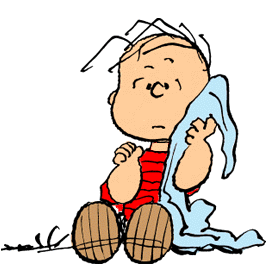Werther is a new kind of tragic hero to me: One with a distinct weakness, though said weakness does not cause his downfall at the hands of the State or the Enemy, but at his own hands. "The Sorrows of Young Werther" seems to be highly notable for its controversial views on suicide (especially in the 1700s), and also for its cult following as an overwhelming number of people latched onto this tragic hero like few before him.
On all accounts, this story is a confessional where Werther's plight is discovered via letters to a close friend. As we read, he reveals himself as tender, intelligent, but moreso than intelligent, _passionate_ and sensitive toward nature. This is what draws in the dreamer, as they identify with good Werther. To go further, it is not uncommon for such a dreamer to identify with suicide; I find through all these literary studies as well as life studies that fantasies of death or sabotage of self can overwhelm one who has difficulty reconciling their true identity with the walking dead of most of the self-unrealized humans who surround them. In short, loneliness can eat the dreamer.
Werther's downfall is romantic passion. It is a bit pathetic to me that he'd kill himself over a girl, but his passion for this woman, Lotte, is part of his idealistic allure. Furthermore, that the torture of the one "thing" you want more than anything you've had or could have which is completely unattainable would drive someone to suicide really isn't that far fetched, is something we can empathize with, regardless if it might be pathetic. In a way, what makes us pathetic also puts us beyond that of the mere animal. Werther's passion over Lotte is based on Goethe's own unattainable apple of the eye; however, the downfall of Werther is based on a total other human being, and while these writings are every bit as sensitive and insightful on the human condition of the dreamer or intellectual non-conformist, it's clear that Goethe couldn't all together come to terms with suicide enough to do it himself. While far from promoting such actions, however, he was bold enough to put forth the act of suicide as a human reality and honestly explore how one could commit such an act. He's perhaps much like Kierkgaard in "Fear and Trembling", who cannot all together understand how Moses is able to have such faith in the absurd (by agreeing to sacrifice his son, Isaac, believing he will do this and see his son again in the material world), but can discuss it creatively and fluently. It opens discussion, in the case of "The Sorrows of Younger Werther", into a topic previously considered to be taboo.
Besides its philosophical discussion on suicide, Goethe offers many other insights on humanity through the filter of the sensitive artist. Let's see (looks through the pages), It is as if a curtain had been drawn from before my soul, and this scence of infinite life had been transformed before my eyes in the abyss of the grave, forever open wide. Can you say that anything _is_, when in fact it is all transient? and all passes by as fast as any storm, seldom enduring in the full force of existence, but ah! torn away by the torrent, submereged beneath the waves and dashed against the rocks? It is moments such as this existential bit (which goes on but I do not want to quote the whole paragraph), which make the book even more enriching in philosophy, and paint the whole picture of Werther's beautiful mind. Goethe goes deep into the crevices of this character's consciousness and has him confessing not just his love for Lotte, but his entire being.
I actually think writing about this book gave me a deeper appreciation for it than when I initially finished it. To truly enjoy, you must meditate on its controversy at the time of publish, the poetry of its language, the way it pins-down the dreamer and shows the suicide in all of us who know what we're a part of. I'm not sure if it'll spark more reading into Goethe, but it may. For now, I have this, and I'm sure extra readings will even further bring out the details of good Werther's thinking and feeling.
